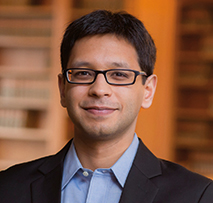K. Sabeel Rahman
Demos & Brooklyn Law School
Professor Rahman is the President of Demos, a think-and-do tank advancing values of racial equity, democracy, and economic inclusion through policy, research, advocacy, and litigation. He is also an Associate Professor of Law at Brooklyn Law School, where he teaches administrative law and constitutional law. His academic research focuses on questions of democratic and participatory governance, public law, and economic policymaking. His first book, Democracy Against Domination (Oxford University Press, 2017) examines the tensions between economic regulation, new forms of private power, and ideals of democratic accountability in context of the financial regulation debate. His next book project explores the changing nature of inequality and economic opportunity, and the future of the social contract in this “New Gilded Age” of inequality, private power, and political gridlock.
In addition to his scholarly work, Professor Rahman served as a Special Advisor in New York City Hall in 2014-15, advising on economic development strategy and policy. As the Design Director and part of the founding leadership of the Gettysburg Project, a new researcher-practitioner network, Professor Rahman has worked with a wide range of leading national economic justice organizations and academics to develop new approaches to improving civic engagement in American politics. He has also worked for a variety of organizations on issues of democracy reform, including the Brennan Center for Justice, and the Governance Lab @ NYU. In March 2015, he was appointed by Mayor Bill de Blasio to the New York City Rent Guidelines Board.
Professor Rahman was previously a Visiting Professor at Harvard Law School (2017), a Fellow at the Roosevelt Institute, and a Fellow at New America. He graduated from Harvard College summa cum laude and was elected to Phi Beta Kappa. He then attended the University of Oxford as a Rhodes Scholar, where he received a M.Sc in Economics for Development and a M.St in Socio-Legal Studies. Rahman then returned to Harvard for his J.D. and Ph.D. in political theory.

